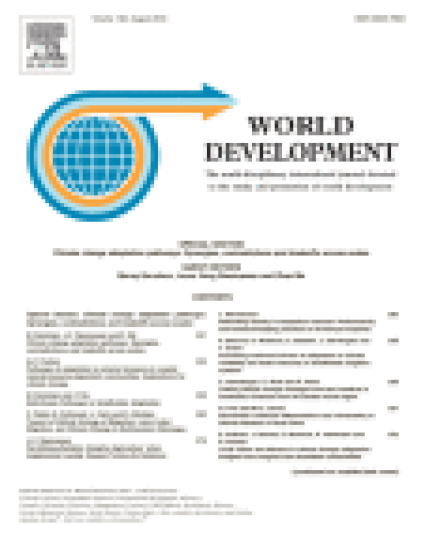
Article
Toward a Political Ecology of Migration: Land, Labor Migration, and Climate Change in Northwestern Nicaragua
World Development
(2018)
Abstract
Smallholder labor migration and its relationship to climate change adaptation has received increasing attention, with migration often represented either as part of successful adaptive livelihood diversification or as symptomatic of a lack of in-place adaptive capacity. Using a case study, we focus on the relationship between labor migration, agrarian livelihood diversification, and climate change to further a more nuanced understanding of “migration as adaptation” than is implied by a simple dichotomy of success versus failure. Smallholder diversification, both on- and off-farm, has largely been framed as a risk-spreading practice that lowers climate change vulnerability. But after decades of advocating livelihood diversification, with labor migration now increasingly a part of smallholder livelihood activities, it is urgent to pose a number of questions: Why do smallholders migrate? How does labor migration unfold for them and with what outcomes? Our primary goal here is to explore the nature of the relationship of labor migration to climate change and climate change adaptation. Through empirical fieldwork in northwestern Nicaragua, we explore the role of labor migration in smallholder household production and reproduction, as families confront increasingly difficult climatic conditions for agricultural production and a relative absence of the state within a neoliberal political economy.
Disciplines
Publication Date
2018
DOI
https://doi.org/10.1016/j.worlddev.2017.04.023
Citation Information
Claudia Radel. "Toward a Political Ecology of Migration: Land, Labor Migration, and Climate Change in Northwestern Nicaragua" World Development Vol. 108 (2018) p. 263 - 273 Available at: http://works.bepress.com/claudia_radel/41/
